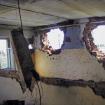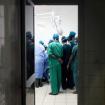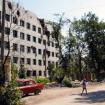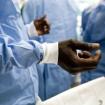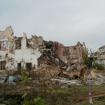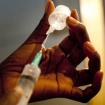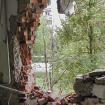News, blog posts, and event announcements. Other websites are welcome to cross-post this material with attribution and a link to the original.
What's New
05/15/2012
On May 11, the Center for Strategic and International Studies (CSIS) hosted a panel discussion on The Protection of Health Care in Armed and Civil Conflict in Washington, DC. The panel featured Ambassador Jimmy Kolker, principal deputy director of the Office of Global Affairs, US Department of Health and Human Services; Leonard Rubenstein, senior scholar at the Johns Hopkins Bloomberg School of Public Health and a member of the Safeguarding Health in Conflict coalition; and Dr. Mark Steinbeck, health delegate and detention doctor for the International Committee of the Red Cross (ICRC). The panel was moderated by Stephen Morrison, Director of CSIS’s Global Health Policy Center.
05/09/2012
On Friday, May 11, from 12:00 to 2:00 p.m, the Center for Strategic and International Studies (CSIS) will host an event titled The Protection of Health Care in Armed and Civil Conflict. In the past year, protecting health care in armed and civil conflict has burst on the international agenda, with action at the UN Security Council and the World Health Organization, a new campaign by the ICRC, and a new international coalition. This event will discuss the new developments occurring in this space and review integrated strategies to protect health care in times of armed conflict and civil strife.
04/23/2012
On April 28, Elizabeth Adams of the International Council of Nurses will lead a priority session at the Sixth EORNA Congress in Lisbon, Portugal. In this session, Future Proofing the Role of Operating Department Nurses, Adams will focus on the recent armed conflicts and the central role that operating department nurses have in very difficult circumstances. Her presentation makes note of the Safeguarding Health in Conflict coalition, of which the International Council of Nurses is a founding member, and encourages attendees to be active in advance of the 65th World Health Assembly, May 21-26.
04/22/2012
On April 26, Leonard Rubenstein of the Johns Hopkins Bloomberg School of Public Health will give a presentation at the 13th World Congress on Public Health in Addis Ababa, Ethiopia, as part of the session Armed Conflict, Human Rights Violations, and Health Impact. Rubenstein will present Advancing Protection of Health in Armed Conflict. The International Committee of the Red Cross has stated that violence inflicted on health care services and personnel is one of the most significant and complex yet under-recognized problems in humanitarian practice.
03/08/2012
Greater leadership is needed from the U.S. government to protect physicians and health facilities from increased attacks in armed conflict zones like Syria, experts told members of Congress in a special briefing today. “Adherence to norms won’t take place unless it becomes a diplomatic priority, with the U.S. and other states using their considerable leverage to demand adherence to international law,” Leonard Rubenstein, a bioethicist at Johns Hopkins Berman Institute of Bioethics specializing in protection of human rights in areas of conflict, said in a prepared statement.
03/07/2012
Good Afternoon. Thank you so much Congressman McDermott for bringing the three of us here this afternoon to discuss the necessity of keeping health care workers safe while they work in dangerous situations. This is an issue which is extremely important to the Obama Administration. It is being addressed in various ways by a number of departments, and I would like to give you a short update how we, the US government are engaging on this issue overseas.
03/07/2012
Thank you, Congressman McDermott. My name is Leonard Rubenstein. I appreciate the opportunity to share my thoughts based on work in this field for more than 15 years. I am a Senior Scholar at the Center for Public Health and Human Rights at the Johns Hopkins Bloomberg School of Public Health and a member of the faculty at the Berman Institute of Bioethics at Johns Hopkins. I am making this statement in my own capacity, not on behalf of Johns Hopkins University.
02/27/2012
A recent editorial in The Lancet issued a dire warning to the international medical community: medicine is a weapon of war in Syria. It is just the latest in a series of reports from across the Middle East on how medical care and medical professionals and facilities are being used to inflict politically-motivated violence.
01/26/2012
Despite firm standards rooted in the Geneva Conventions to protect health facilities, health workers, and the patients served during armed conflict, and to enable health professionals to act consistently with their ethical obligations, assaults on and interference with health functions are all too common in war. Aside from the human toll they take, these attacks often compromise the ability to deliver care to populations in great need, impede efforts to reconstruct health systems after war, and lead to the flight of health workers whose presence in a time of great social stress is essential.
01/26/2012
Last week, the World Health Organization’s Executive Board took an important step toward protecting the lives of health workers and patients in conflict zones by passing a resolution that calls on the WHO Director General for leadership in documenting evidence of attacks against health workers, facilities, and patients in situations of armed conflict. A coalition of international nongovernmental organizations, including IntraHealth International, sought this provision as part of its efforts to increase documentation of these attacks and to develop strategies for prevention. The lead sponsors of the resolution were the United States, the European Union, and Japan.



